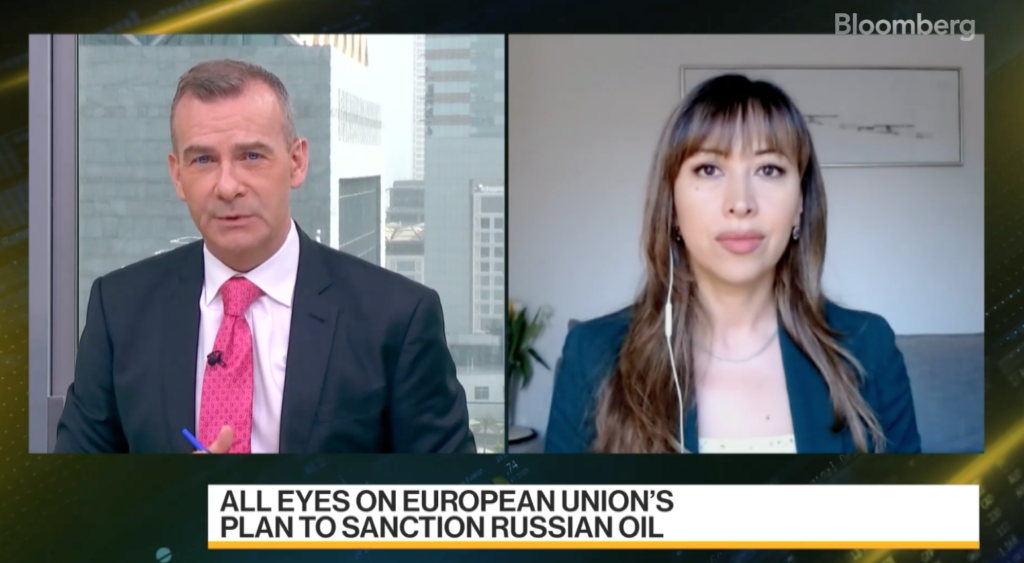In this interview with Manus Cranny from Bloomberg, Dr Carole Nakhle, CEO of Crystol Energy, comments on OPEC+’s latest decision as the EU moves towards banning Russian oil supplies.
Dr Nakhle says that OPEC+’s decision to stick to its gradual supply hike is not surprising; even when oil prices nearly hit $140 /bbl at the beginning of the conflict in Ukraine, the organisation didn’t blink. After all, there is a lot to gain from higher prices.
Meanwhile, most forecasting agencies are warning of a looming recession with negative repercussions on oil demand at a time when more supplies from outside OPEC+ are coming to the market – from the strategic petroleum reserves as well as increase in production in countries like the US, Norway and Guyana.
On whether Asia can absorb all the Russian oil supplies, Dr Nakhle argues that some of those supplies can be directed to alternative markets, especially as Russian crude is sold at a discount which would be appealing to many refiners around the world. However, the worrying macroeconomic outlook in China – the biggest oil importer in the world – can limit Asia’s absorptive capacity.
The EU is the largest economic bloc in the world, and it has been relying on Russian fossil fuels for decades. It cannot suddenly turn its back completely on Russian oil. Some waivers and exemptions are likely to be given to some EU members and that by itself will weaken the effectiveness of any oil embargo.
Dr Nakhle further explains that gas markets are regional and are mostly bound by the infrastructure that connects the consumer and producer. While Liquified Natural Gas (LNG) has been weakening that bilateral trade relationship, it still accounts for a small proportion of the total gas produced. On balance, it is unlikely that the EU will ban Russian gas any time soon.
Related Analysis
“Sanctions and the Economic Consequences of Higher Oil Prices“, Christof Rühl, Apr 2022
“Energy Markets and the Design of Sanctions on Russia“, Christof Rühl, Mar 2022
Related Comments
“EU Sanctions on Russian Oil“, Dr Carole Nakhle, May 2022
“EU Talks to Ban Russian Oil“, Dr Carole Nakhle, May 2022
“Where are we in the oil markets?“, Dr Carole Nakhle, May 2022
“The outlook for Russian gas in Europe“, Dr Carole Nakhle, Apr 2022
“The West and Russian Hydrocarbons: Towards an end to this dependency?“, Dr Carole Nakhle, May 2022
“Is Moscow turning to Asia?“, Dr Carole Nakhle, Apr 2022
“Putin demands gas exports to be paid in rubles, and US SPR release“, Dr Carole Nakhle, Apr 2022
“Can Europe completely cut its reliance on Russian energy supplies?“, Dr Carole Nakhle, Mar 2022









